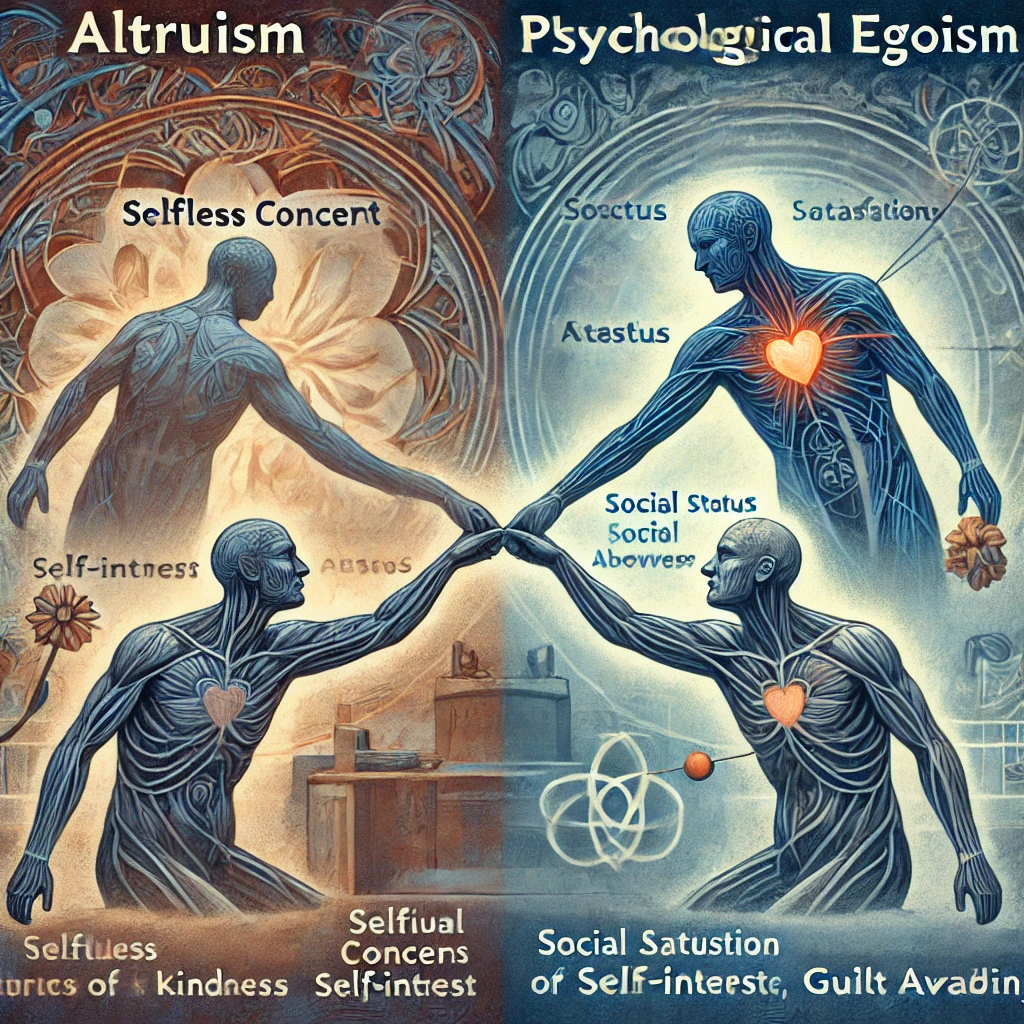
Altruism, the selfless concern for the well-being of others, is a noble and highly regarded virtue in society. We often witness acts of kindness, generosity, and sacrifice driven by a genuine desire to help others. However, some philosophers and psychologists propose a different perspective that challenges altruism’s authenticity. This perspective is known as psychological egoism, suggesting that all human actions, even seemingly altruistic ones, are ultimately motivated by self-interest. In this blog post, we will delve into the concept of psychological egoism and explore the arguments in its favor.
The Theory of Psychological Egoism
At the heart of psychological egoism lies the notion that humans are inherently self-interested. According to this theory, every action an individual takes, including acts that appear selfless, is driven by the pursuit of personal benefit or satisfaction. In other words, individuals engage in seemingly altruistic behaviors because doing so either makes them feel better about themselves or prevents them from feeling worse.
1. The Pleasure Principle
One of the key arguments supporting psychological egoism is the pleasure principle. It posits that individuals are naturally inclined to seek pleasure and avoid pain. Therefore, even acts that seem to prioritize the well-being of others are ultimately driven by the desire to experience the pleasure associated with being a virtuous and compassionate person. This perspective suggests that individuals act altruistically because it brings them a sense of satisfaction and fulfillment.
2. Social Approval and Self-Image
Another argument in favor of psychological egoism centers around social approval and self-image. According to this viewpoint, individuals engage in altruistic actions to gain the approval and admiration of their peers, which, in turn, enhances their self-image. In essence, helping others is a means to bolster one’s social standing and self-esteem.
3. Avoiding Negative Emotions
Psychological egoism also argues that individuals act altruistically to avoid negative emotions. Failing to help others may lead to feelings of guilt, shame, or remorse. Individuals prevent these negative emotions and maintain their psychological well-being by assisting others. In this sense, altruistic actions serve as a form of emotional self-preservation.
While the concept of psychological egoism challenges the genuineness of altruism, it is essential to recognize that this perspective is not without its critics. Many philosophers and psychologists argue that true altruism exists and is driven by a sincere concern for others, devoid of any underlying self-interest.
In the ongoing debate between psychological egoism and genuine altruism, one thing is clear: human motivation is a complex and multifaceted phenomenon. Whether all actions are ultimately rooted in self-interest or genuine acts of selflessness are possible remains a philosophical and psychological exploration topic. Understanding these perspectives can lead to a deeper appreciation of the complexity of human behavior and motivation.
In conclusion, psychological egoism offers a thought-provoking viewpoint that challenges our traditional understanding of altruism. While it suggests that self-interest is at the core of all actions, the debate on the authenticity of altruism continues, and it is up to individuals to explore and determine the nature of their motivations.